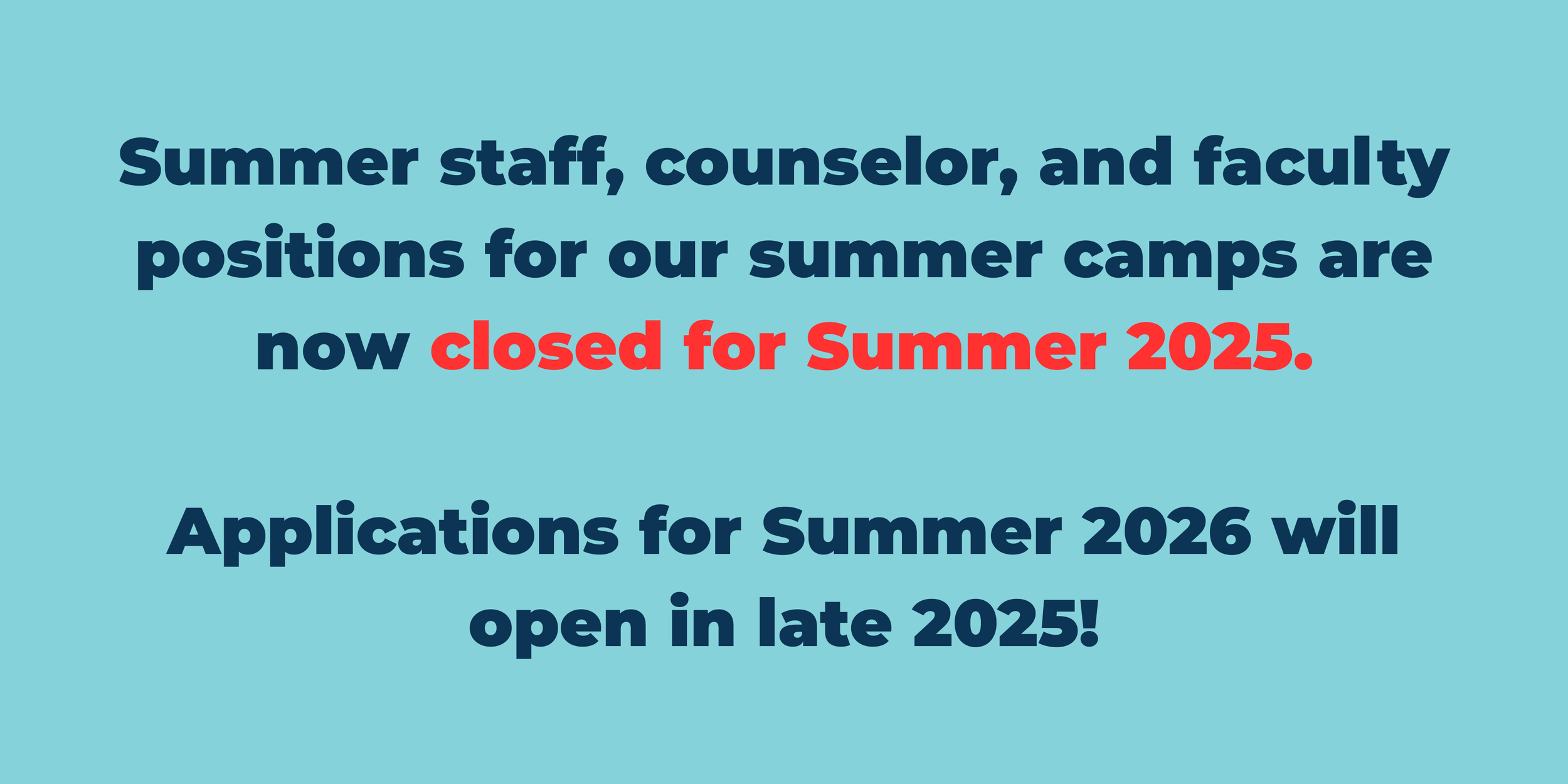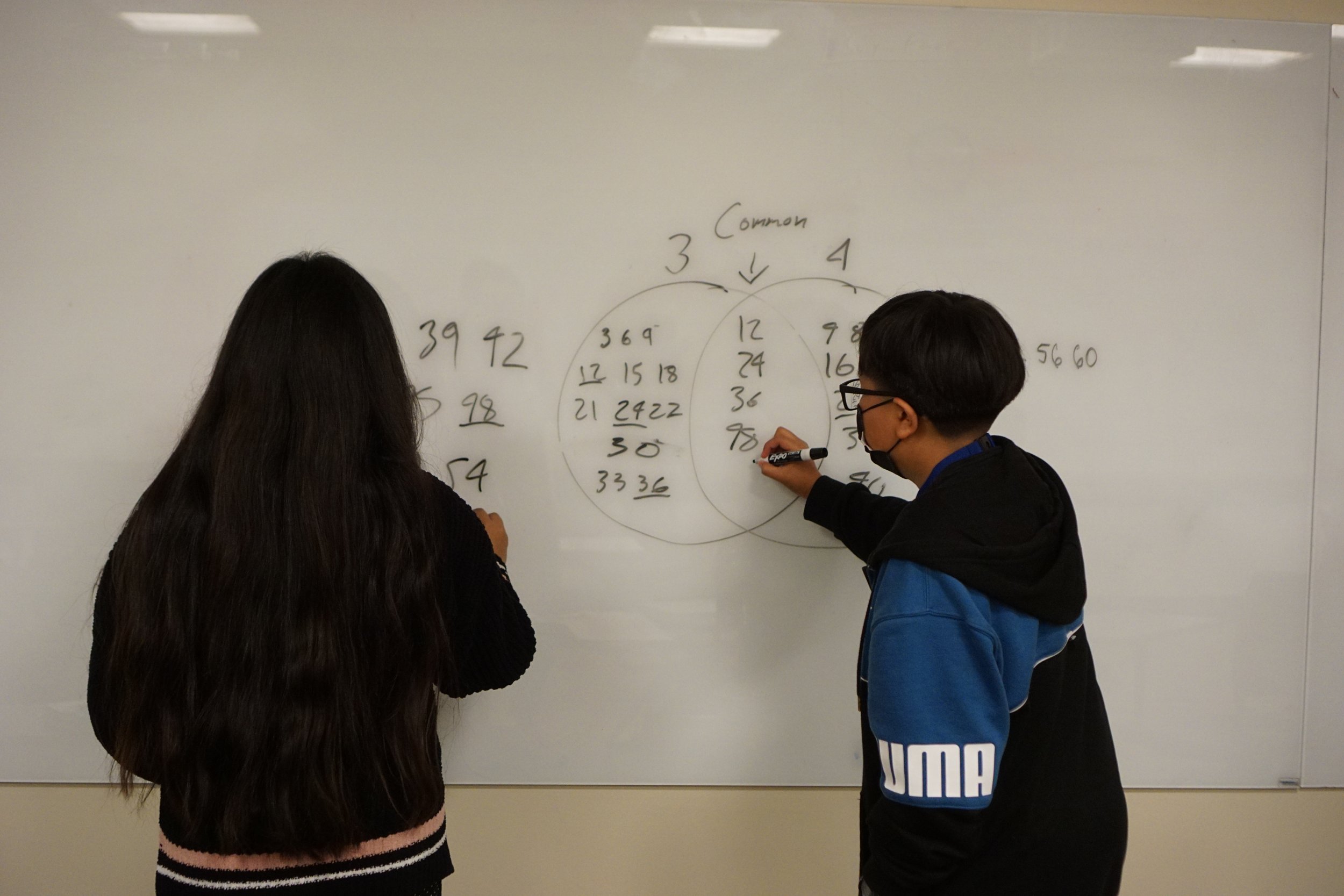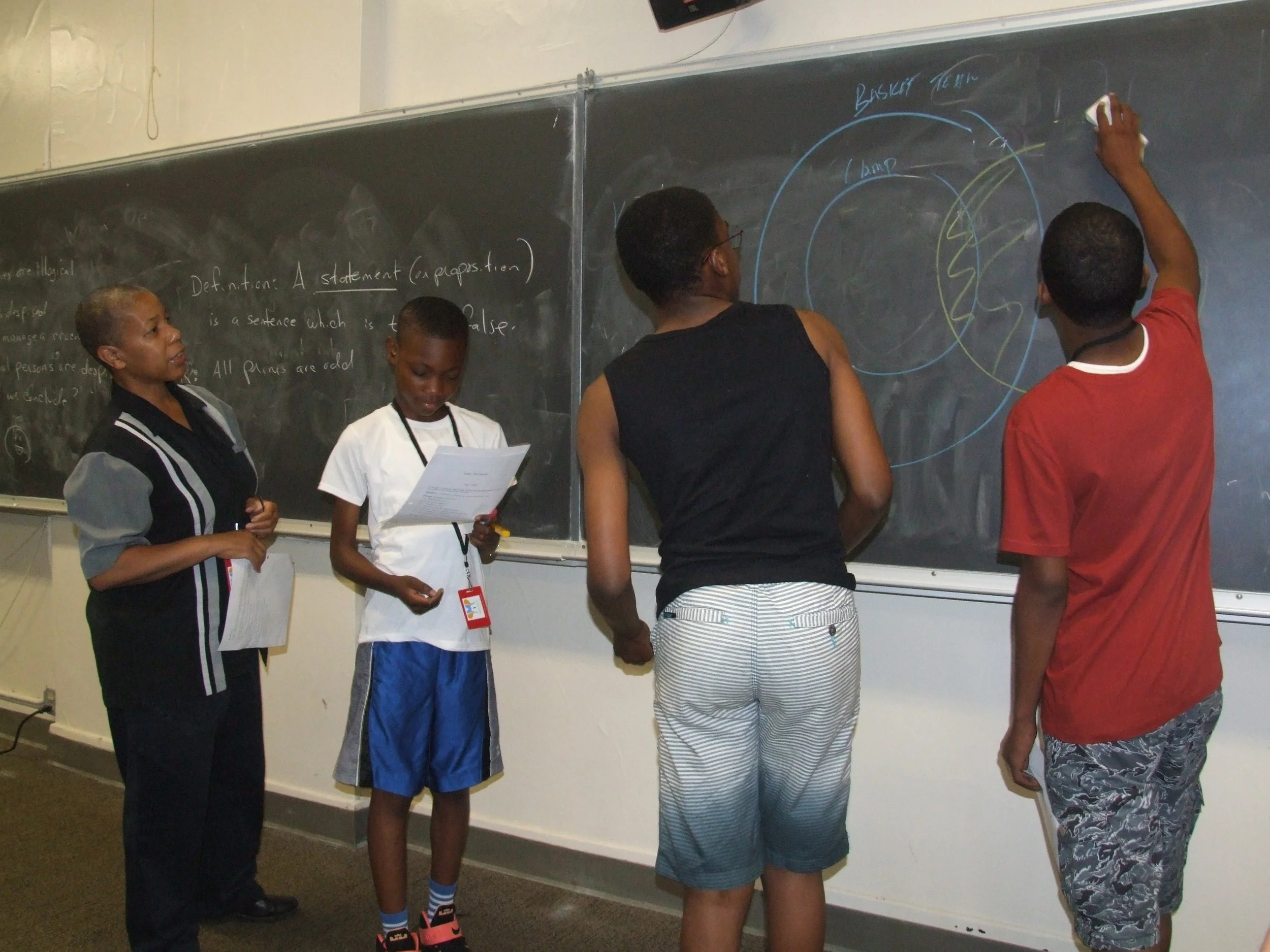
TEACH AT BEAM
BEAM Summer Away Faculty Info
This page contains information about working at BEAM Summer Away, our residential program in the Hudson Valley and Southern California. We are also hiring faculty for BEAM Discovery, our non-residential program in New York City and Los Angeles.
This position is intended for those with work experience beyond college, including a post-graduate degree, a college degree, or equivalent experience. For current college students, please apply to be Counselor/TAs at our programs.
Change the lives of students with exceptional potential from underserved schools by joining BEAM as a summer faculty member! Introduce students to advanced math as they take their first steps towards becoming mathematicians, scientists, and engineers with BEAM. BEAM, a project of the Art of Problem Solving Initiative, Inc., is seeking instructors for a residential summer camp that gives underserved students a chance to excel in mathematics. Our residential camps run for 3 weeks over the summer in both Los Angeles and New York City (staff report for 4 weeks), and instructors teach two classes during the program.
Please click on the headings below to learn more about the BEAM Summer Away program, the faculty position, and the application process. If you’re ready to apply or have further questions, check out our FAQ page. We look forward to hearing from you!
+ ABOUT THE PROGRAM
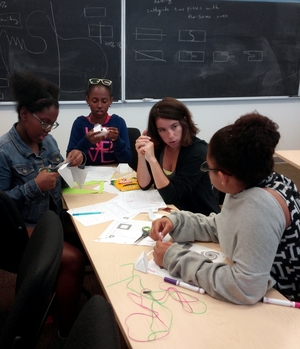
BEAM Summer Away is usually a three-week residential summer program for rising 8th graders, the required first step of our nine-year support program BEAM Pathway Program. In 2020 and 2021, we ran BEAM Summer Away as a virtual four-week experience (spreading the same experiences over time to decreases screen time per day).
We aim to create a life-changing experience for all the students that attend. We expose them to mathematics that they've never dreamed of before. They join a community of peers, perhaps for the first time, all interested in mathematics, and we'll supplement that social environment with activities, field trips, and more.
After the summer, we support them through college graduation, providing them with the resources and enrichment opportunities needed to successfully pursue careers in math, science and engineering. You can see more about the program's details on this website (just explore the links above).
BEAM has served the New York community since 2011, and Los Angeles since 2017. As far as we know, nothing quite like this exists elsewhere: while many efforts in underserved communities focus on achieving minimum competency or basic exposure to STEM, we focus on advanced math from an early age. Our experience has been that the program really changes lives and serves as a model for outreach across the country, while expanding the talent pool for mathematics and related fields.
+ ACADEMIC STRUCTURE and Schedule
Students do roughly seven hours of math per day, divided among topics courses, problem solving, and independent study.
Students choose a different topics course each week. Topics courses meet for four hours per day (only two the last day), giving 18 hours of total class time. They cover topics in theoretical and applied mathematics — for example, graph theory, logic, cryptography, or astronomy. Each topics course is taught by one instructor and assisted by an undergraduate counselor. As a topics course instructor, you design the class. These classes are very exciting to design and teach! You can see previous course descriptions here.
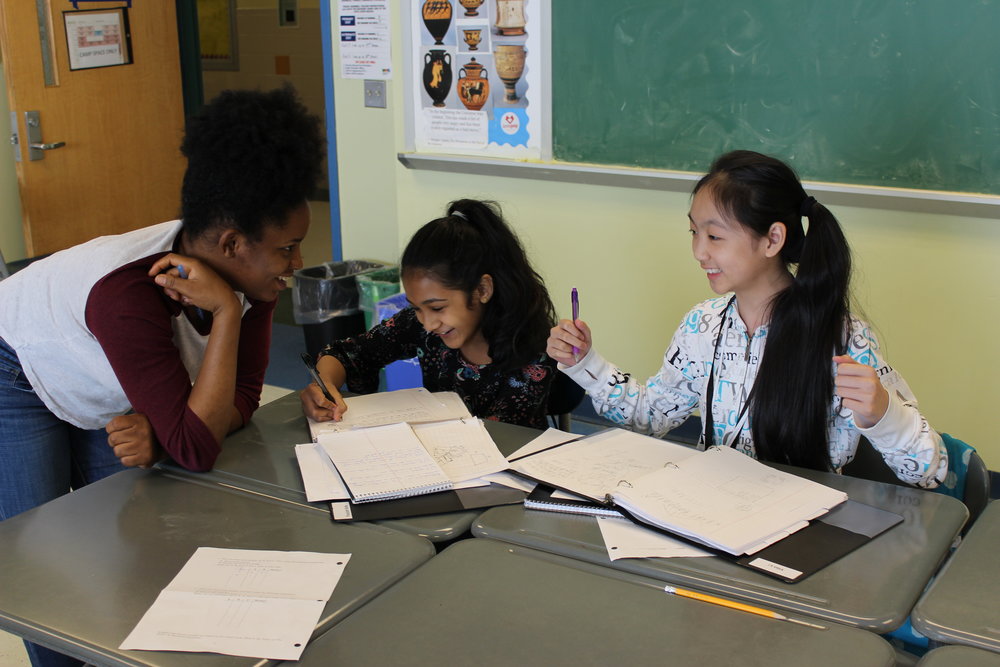
All students take problem solving for two hours each day. They have two choices for this block, Strategic Math Thinking or Solving Big Problems. Strategic Math Thinking is designed to prepare students for future success in math contests, such as MATHCOUNTS, the AMC 8, and Math Kangaroo. The instructor acts as a math team coach, introducing student to contests, suitable problems, and how to approach them. Solving Big Problems aims to develop skill at sustained problem solving. This class explores more abstract and proof-based problems that may require several hours or even days of thought and experimentation.
Finally, in the evening before bed, students work on self-paced modules designed to develop their understanding of math fundamentals, with an emphasis on escaping from the rote strategies they've often learned so far.
One of our goals is to prepare students to enter mainstream programs for students with mathematical talent. Hence, we want to raise their ability to think abstractly, understand proofs, help them to see a "mathematical world" around them, and prepare them for more advanced problem solving.
Sample weekly schedule when teaching in person
Here's a sample of a schedule a topics instructor might have
| Tuesday | Wednesday | Thursday | Friday | Saturday | |||
|---|---|---|---|---|---|---|---|
| 8am-9am | Breakfast with students | ||||||
| 9am-10am | Teach topics course | ||||||
| 10am-11am | |||||||
| 11am-12pm | Staff Meeting | Staff Meeting | |||||
| 12pm-1pm | Lunch with students | ||||||
| 1pm-2pm | Teach topics course | ||||||
| 2pm-3pm | |||||||
| 3pm-4pm | Supervise assembly | ||||||
| 4pm-5pm | |||||||
| 5pm-6pm | |||||||
| 6pm-7pm | Dinner with students | ||||||
| 7pm-8pm | Sort students into next week's courses. | ||||||
| 8pm-9pm | Support students in independent study | Support students in independent study. | |||||
During the white open slots, you have no formal responsibilities and we mostly expect that to be a break or course planning time. However, there are a few other tasks you might use this time for instead, for example: helping with evening activities, recording student feedback for end-of-problem letters, sitting in on guest mathematician’s talk, attending student math relays.
Each topics instructor will have one week during the program when they don’t teach. During that week, they should take advantage of more opportunities to get to know students on a more personal level (for example, organizing break activities), and will be asked to take on other responsibilities as need arises (doing data entry or guiding visiting parents for the day).
Lastly, while we expect Sundays and Mondays to be less busy for faculty than weekdays, both to take a break and plan for your next week, we do expect you to pitch in a little, and maybe even attend one or two field trips.
+ About the Students
Our students are bright and motivated, but they have had very few (if any) opportunities to explore serious mathematics. Even though we are highly selective, we still find that our students lack much of the preparation of more affluent peers.
For example, despite being the top students at their school, they've seen very little (if any) algebra. Worse, their perception of mathematics is very procedural. When asked to add 99 + 99 + 99 + 101 + 101 + 101, many proceed to use long addition. In general, their knowledge of fractions is weak. Although they are capable of thinking abstractly, they are not practiced at it.
Over the course of the summer, the students become stronger in mathematics and develop much more stamina and insight for solving difficult problems. They learn abstract topics that kids their age don't usually get to see. For example, students have developed for themselves a proof of the infinitude of primes, and they were able to answer subtle questions about it. They mastered binary and understood image encoding. Students from past years have enrolled and succeeded at selective high schools and their teachers report tremendous growth.
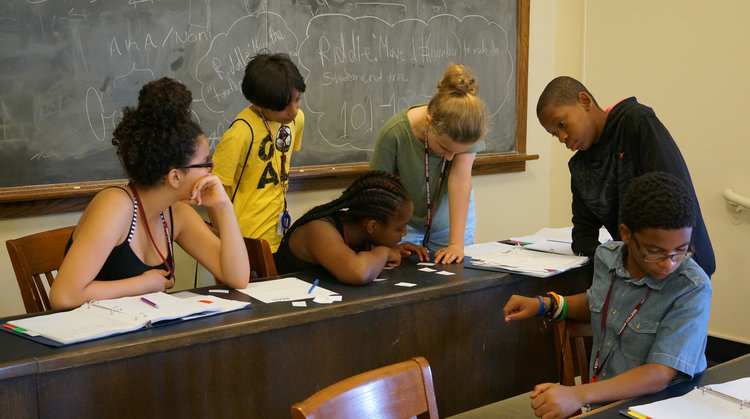
+ Your Role
We have two types of faculty, topics and problem solving.
Topics course instructors develop two different courses, each a week long, on topics such as number theory, combinatorics, graph theory, digital communications, programming, and so forth. Each of these topics courses runs four hours per day for four days plus two hours on Saturday, for a total of 18 hours per course. (One of the three weeks has no teaching component, but you are still expected to contribute to the program logistics and social elements.) The virtual version is also teaching two topics classes in sequence, each of which is two hours a day for 2 weeks for a total of 16 hours (there's no classes on Wednesdays).
Problem solving instructors teach courses either on Strategic Math Thinking or Solving Big Problems. Each problem solving instructor teaches two-hour problem solving sessions, repeating the same session twice per day, four days per week. You will also help to organize either our weekly "math relays" or our "challenge problems". The virtual version each class is only one hour (and the program itself is four weeks long instead of three), but otherwise similar.
You can see more about program academics above.

When we run in person, BEAM classes run Tuesday-Saturday so that we can take field trips to popular locations on Mondays, which are often less busy. Hence, you will be called on to teach on Saturdays. If this requirement poses a problem for you for religious or cultural reasons, we can come to a reasonable arrangement although you may need to have a substitute for the last day of your course.
Students receive no homework for courses, so students will spend much of course time doing problems. What you might think of as "homework" becomes guided study in class. Your course size will be roughly 8-15 students, and you will have a dedicated TA. We do not assign grades to students, so you are not responsible for any grading. We instead write letters to students and their families describing their growth at the end of the summer.
There are a few other responsibilities of which you should be aware:
- Before the summer:
- Some paperwork and pre-programming training. We’ll ask you do some both program-related information (what classes you’re teaching, some video-training) and some employment paperwork (a doctor’s note, signing up for our payroll system, etc.).
- Prepare your courses. Although you will have some time once you arrive on-campus, our instructors report that having most of their material developed ahead of time is very helpful.
Pre-program setup: Attend training. If in person, help unpack the campus and set it up for students.
- During the program:
- Pitch in as able! Our community work because our staff step up when things come up that need to get done.
- On Sundays and Mondays, we run field trips (when in person). Faculty can often take some time off during this, but we do ask that you pitch in by attending a few of them and supervising students left behind.
- Post-program take-down: Participate in discussions to shape the next year of BEAM, pack up the program, and write feedback letters to students.
PITCH IN WHEN NEEDED!
We ask a lot of our staff. This is a small residential summer program, and everyone is called on to help out. Sometimes, a student you know particularly well might be having difficulties and we'll call on you to talk things over with them. Sometimes it will be your week off as a topics course instructor and we'll really need someone to watch a student while other staff aren't available. Although such supervision won't be the bulk of your time, we are looking for people who have the desire to "pitch in" with whatever comes up.
BEAM will likely take most of your attention and energy during the weeks students are present, but our staff overwhelmingly agree that the resulting community and experience is magical —- and worth it. You will have a fundamental role in shaping the program: as much as possible, issues are discussed with the whole staff before decisions are made. (Don’t take our word for it! Read this blog entry by University of Minnesota Ph.D. candidate Cecily Santiago about her experience teaching for us in Summer 2019.)
Although there is a lot to be done, we offer a great deal of flexibility about when work is done. You'll have some control over when your classes are scheduled, what activities you run with students, and when you help out. Unless we're really strapped to find someone, we fill our weekly task sign-up sheets with volunteers. If you need to take some time off, it can usually be arranged without a problem. If there is an activity that does not fit well with your preferred schedule, we can arrange some trades with other staff to accommodate your preferences.
+ Other Staff
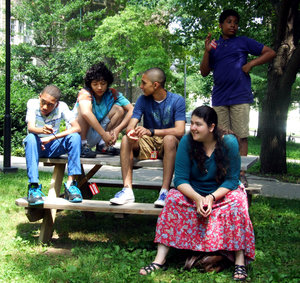
-
In addition to the instructors, there will be:
- A Site Director.
- 7 Counselors. The counselors are college students who live with the students, run activities for them, and supervise them between courses. They also act as teaching assistants for courses and assist students in the problem-solving sessions.
- The Director of Student Life, who leads the counselors and oversees non-academic activities.
- Social Worker (who support student adjustment to the environment and lives in the dorm with the students).
- Health Director, usually a nurse who helps with daily medications and medical incidents. The nurse is on call, and depending on the site may live off-site or in the dorm.
+ Dates and Locations
The program runs for three weeks for students, from Sunday to Sunday.
Staff are expected to begin a few days early and end a few days late. Before the camp we will be preparing courses and dealing with the logistics of camp setup, while after the camp we will be evaluating the outcomes and cleaning up.
We run three sites. In person, we run these on college campuses, one in Southern California and two in upstate New York. Instructors either live in college dorms separate from the students or live in the same dorm as students on a separate floor.
Summer Away Program Dates: TBD
+ Qualifications
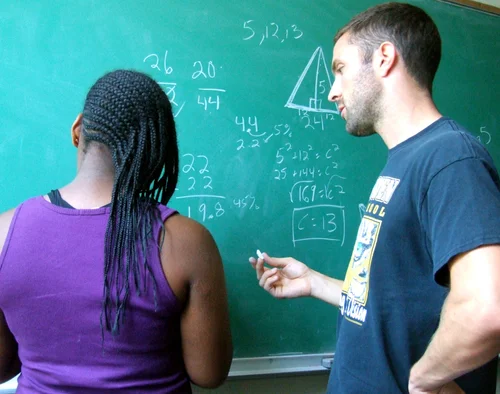
In an effort to provide entry points for people at multiple stages of their careers, we have
junior faculty, faculty, and senior faculty
positions. Teaching responsibilities are similar, but junior faculty receive additional mentoring and support. In either case, you can still apply to teach topics courses, Math Team Strategies, or Solving Big Problems.
Read on below to decide what position would be most appropriate for you, and feel free to contact us with any questions. Please note that junior faculty salaries are lower, to allow us to provide additional training and support. We hope that you will also see the program as we do: a labor of love that reaches the students most in need, and a program with the potential to have a transformative effect on achievement in mathematics and related fields.
Faculty Positions
Faculty positions are especially intended for:
- College/University professors, especially those with outreach experience,
- Middle or high school teachers with strong mathematics backgrounds and 3+ years of experience, or
- Graduate students in mathematics or related fields who have taught in schools.
We strongly welcome applicants in applied fields as well. Computer science, astronomy, and biology have all been part of our program in the past, so long as substantial mathematical reasoning was involved in the courses.
Senior Faculty positions are typically held by BEAM Summer Away faculty who have returned to work with us for multiple summers and shown growth over time, or they are held by applicants that are exceptionally strong across each dimension that we evaluate on. For more information on the distinction between Faculty and Senior Faculty, see our FAQ page.
Junior Faculty Positions
Junior faculty have the same responsibilities as faculty, but additionally enter into a mentoring program guided by experienced BEAM instructors, and attend a weekend class planning retreat before the summer (usually in May), as well as some other extra training/planning sessions. Junior faculty positions are intended for:
- Graduate students in mathematics or related fields, especially those with outreach experience,
- Early career middle or high school teachers with strong mathematics backgrounds and less than three years of teaching experience, or
- Other professionals with limited teaching experience.
Returning staff receive higher salaries based on the number of summers they have attended. After two or three years of experience with BEAM, Junior Faculty are often invited back to be full faculty.
Here’s some words about the experience from one past Junior Faculty member:

+ FACULTY RECRUITMENT PROCESS
OVERVIEW OF THE PROCESS
In the interest of transparency, we’ve laid out the steps of our hiring process below, but you’re also welcome to skip directly to the application via the button at the top of this page.
- The first step is the initial application to learn more about you as a teacher, gauge your fit with the program, and collect basic information. You will be asked to submit a resume as part of your application, but feel free to substitute a CV or brief summary of your experience. Please do not spend too much time on this; it should take no more than an hour to submit. If you have questions or would like to share any supplemental documents, feel free to reach out at hiring@beammath.org.
- Once we have reviewed your initial application, we may invite you to an initial 30 minute interview where we can learn more about your approach to teaching and you can ask questions about the program
- After that interview, we may invite you to submit a more detailed course proposal. This is the most important component of your application.
- If you are applying to teach a pre-packaged course, we will give you a class to review beforehand and perhaps ask you to submit some problem solutions from that class.
- If you are applying to teach your own class, we will be doing the interview based on the course proposal you submitted and asking more in depth questions about it.
- Once we have reviewed your material, the final step of the process is an interview of about 60 minutes. We try to keep the interview relaxed, but do plan to have a serious conversation about curriculum, mathematics, and class management.
We are dedicated to putting together the staff that can put together the best possible experience for our students, and believe that this process gives us valuable information on this. We appreciate and value your work and time, and if there is anything we can do to clarify or improve this process for you, please do not hesitate to reach out to hiring@beammath.org.
*Note sure which is the right fit? Apply to only one and note it in your application —- we can transfer you between positions.
*
We will continue to accept Faculty applications and review on an ongoing basis while positions are still open.
Additional Notes
We welcome applications from anyone who thinks they might be a match for our program. If you're wondering if you're a good fit, please contact us at hiring@beammath.org to discuss your background.
We aim to provide strong role models for our students, and that means finding an instructional faculty that shares the background of our students as much as possible. Thus, we especially encourage applicants who come from underrepresented minority groups, applicants who have faced financial hardship while pursuing their education, and/or applicants who have experience in the New York City or Los Angeles school system. We are an equal opportunity employer, and so persons of color, women, and those with disabilities are all encouraged to apply. Showing diversity in mathematical achievement is critical to our program's success.
+ Words of Past Faculty
Finally, here are some closing words from some of our past faculty:
I can’t emphasize enough how transformative an experience this program is for the students, and how much I wished such a program existed where I grew up when I was a rising 8th grader. Teaching at [BEAM] was a great joy, and I highly recommend it as an outreach initiative to get involved in! - Dr. Mohamed Omar, Assistant Professor, Harvey Mudd College. See more of Mo's AMS blog post here (please note that Mo uses our former name "SPMPS" throughout).

One of the highlights of my teaching career has been creating my own course on projective planes and finite geometry, and building it with the [BEAM] audience in mind. And actually teaching it to such an eager, young yet capable audience was pretty great too! - Daniel May, Assistant Professor, Black Hills State University.
Teaching at [BEAM] is all the best parts of teaching — curious, motivated, and enthusiastic students, challenging yet accessible nontraditional topics, and diverse, lively, and intellectually stimulating colleagues! - Erin Toliver
[BEAM] provides the best in being a math teacher. You make connections with great students, teach incredible content and become a member of an incredible extended "family." - Michael Pillsbury, Charlotte-Mecklenberg School District
The program is run with intelligence and care. - Larry Guth, Professor, MIT
As a high school teacher, I had a lot of fun changing gears and working with this middle school group. As a group, they were friendly, warm, and always "in the moment." But also, there was a great deal of excitement among the students, and it was contagious. They had great positive energy, making it easy for me to channel their energy in productive ways. Watching them grow, academically and socially, over the three weeks was an experience I'll never forget. - Debbie Seidell, Teacher, Horace Mann School
[BEAM] brought students and faculty very close. This program taught me that mathematics can be a tool used to not just to explore the potential of these middle school students, but also a way to bring about equality regardless of our socio-economic backgrounds. - Jorge Perez, College of the Desert
We are always available to answer any questions you might have, so please feel free to get in touch. We look forward to working with you this summer!
Sincerely,
Josephine Ochoa
Director, LA Programs
josephine@beammath.org
Cynthia Correa
Director, NY Programs
cynthiac@beammath.org

